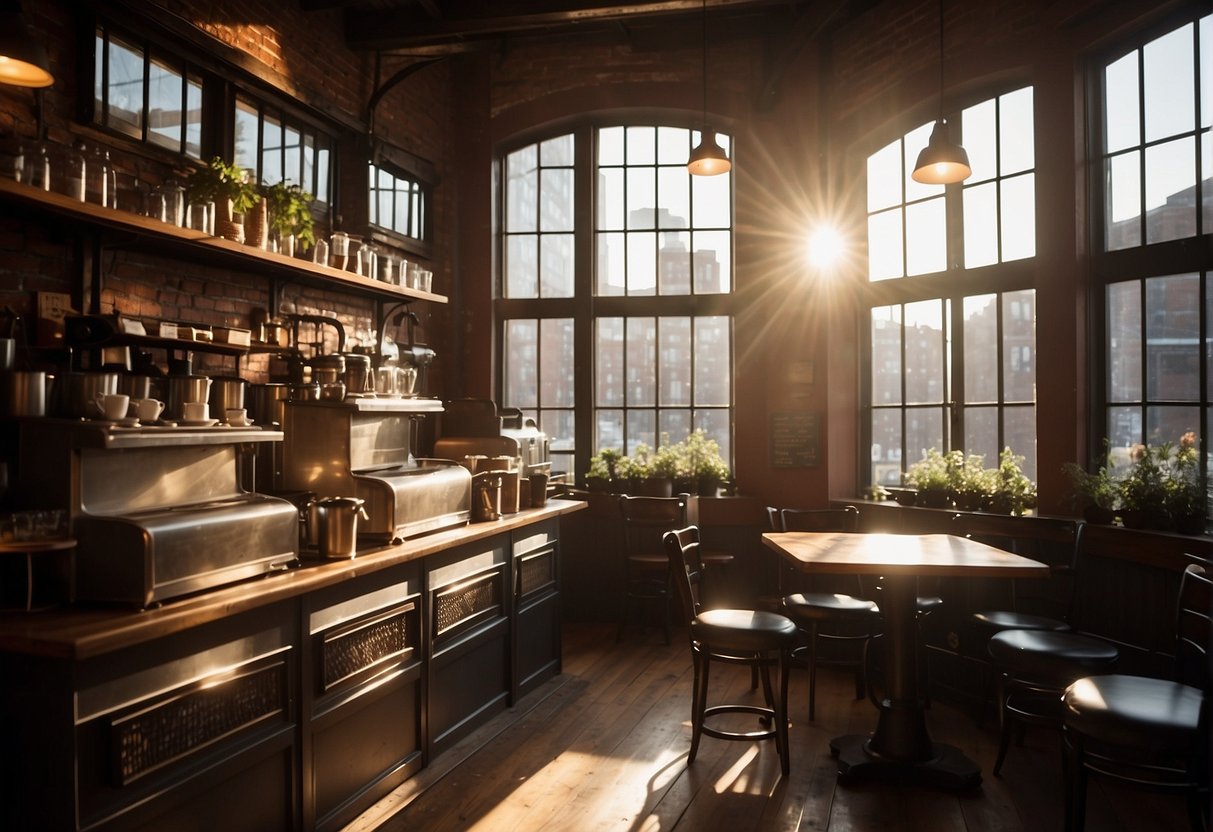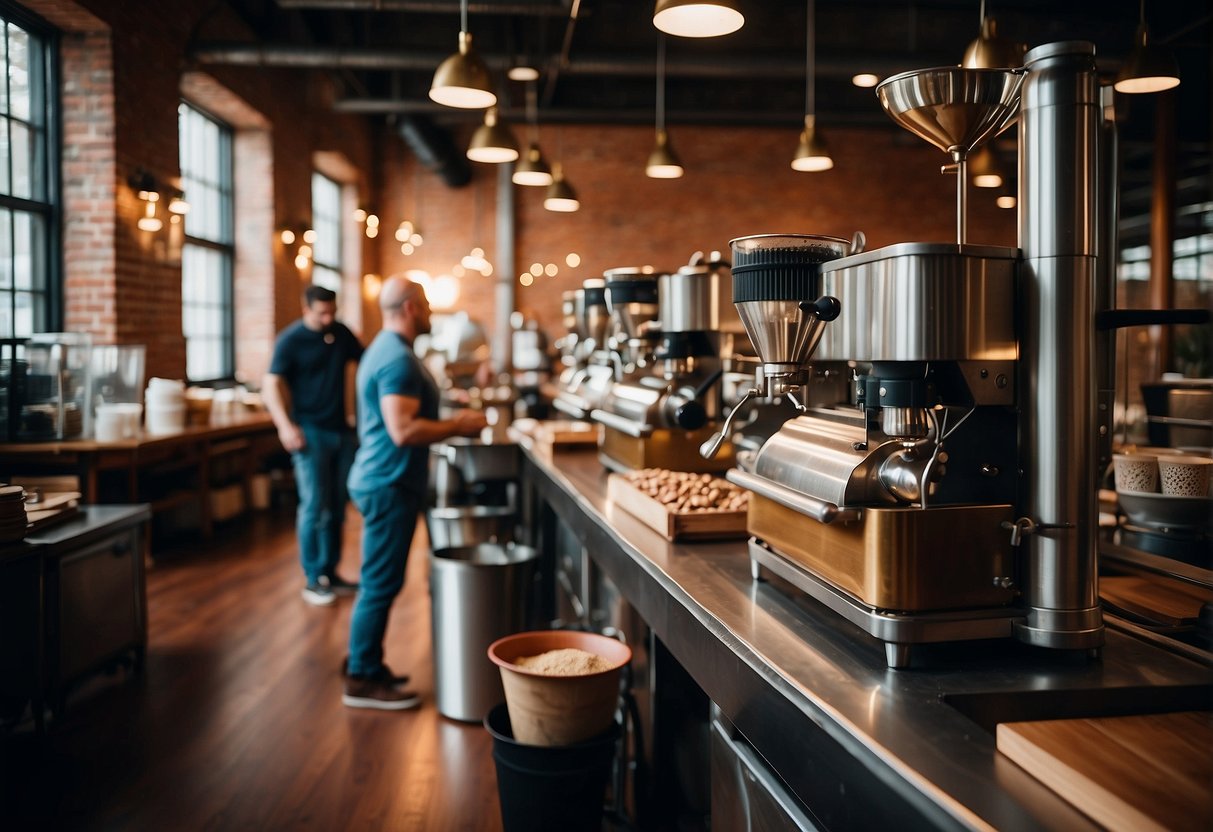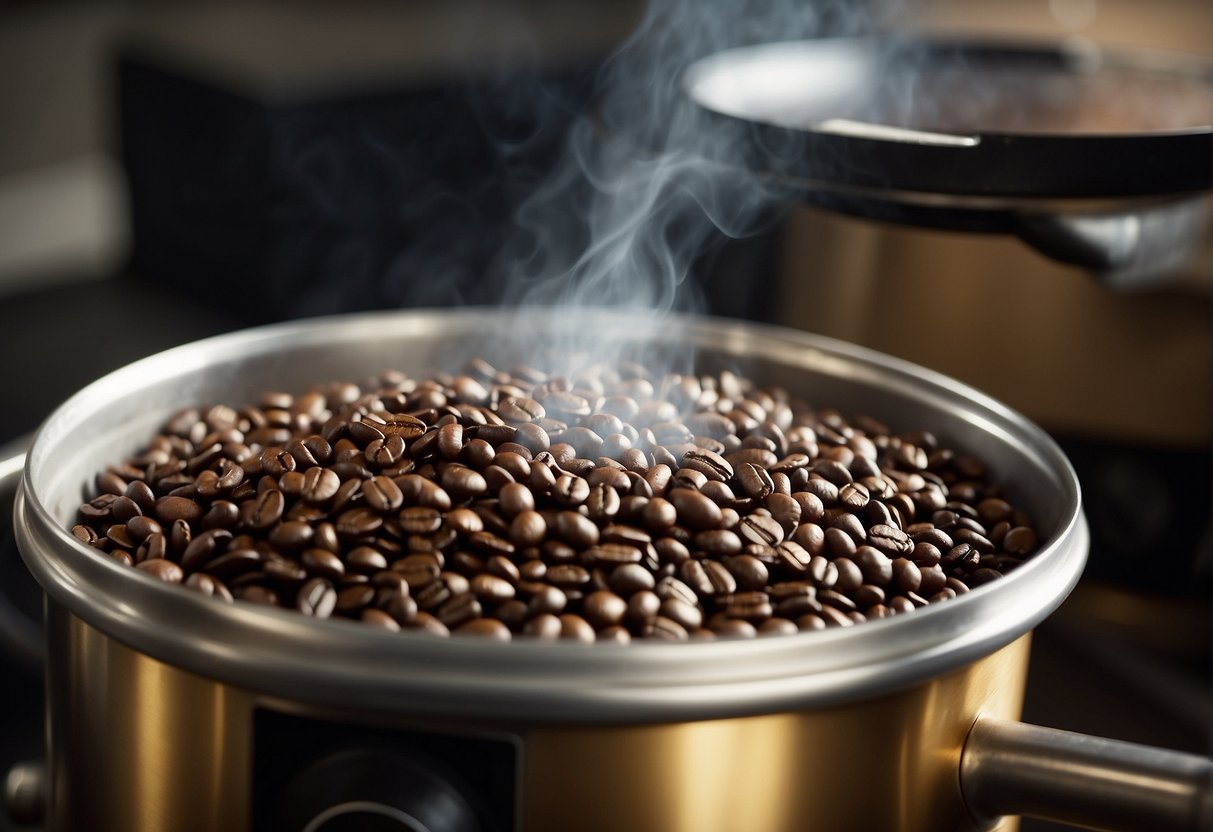Boston, a city renowned for its rich history and vibrant culture, also boasts a thriving coffee scene. Coffee enthusiasts flock to Boston for its array of specialty coffee roasters that showcase a commitment to quality, sustainability, and innovation. These roasters source beans from around the world, promising a diverse range of flavors to cater to any palate.

The best coffee roasters in Boston are not just establishments serving a morning cup; they are spaces where coffee is both a craft and a storytelling medium. Each roastery has its unique approach, whether focusing on single-origin beans, experimenting with roasting techniques, or fostering community connections. They share an unwavering dedication to delivering an exceptional coffee experience to locals and visitors alike.
As home to some notable coffee roasters, Boston has become a destination for those seeking to explore the nuances of specialty coffee. Whether in the Leather District or the wider metropolitan area, these coffee houses take pride in their product, ensuring every batch of beans reaches its fullest potential. They invite customers to savor the robust, nuanced flavors that only meticulously roasted coffee can provide.
History of Boston’s Coffee Scene
https://www.youtube.com/watch?v=85frPpSB5Mg&embed=true
Boston’s engagement with coffee spans centuries, having deep roots in American history. The city’s historical landscape has been influenced significantly by coffee, beginning with the Boston Tea Party in 1773, which was not only a political protest but also catalyzed a shift from tea to coffee consumption among the local population.
In the modern era, George Howell played a pioneering role in transforming the coffee culture of Boston. He became famous for founding the Coffee Connection in Harvard Square in 1974, which he later sold to Starbucks in 1994. This sale was a key moment in establishing the presence of international coffee brands in Boston.
Furthermore, the city boasts a rich array of independent coffee roasters and cafés. Among them is Gracenote Coffee, established by Patrick Barter in 2012. Starting from humble beginnings, roasting coffee on a modified gas grill, Gracenote Coffee exemplifies Boston’s innovative spirit within the coffee sector. It stands today as a respected and critically acclaimed establishment.
Despite the influx of major coffee chains, Boston maintains a vibrant community of artisanal coffee roasters, illustrating the city’s ongoing commitment to quality and locally sourced products. These coffee entrepreneurs honor the city’s historic past while propelling its coffee scene into a dynamic future.
| Year | Milestone |
|---|---|
| 1773 | Boston Tea Party leads to a shift from tea to coffee. |
| 1974 | George Howell opens the Coffee Connection. |
| 1994 | The first Starbucks outside of Seattle opens in Boston. |
| 2012 | Gracenote Coffee is founded by Patrick Barter. |
Top Coffee Roasters in Boston

Boston’s coffee scene is vibrant, with a selection of esteemed roasters who prioritize quality, sustainability, and excellent customer service. The following roasters are not just coffee suppliers; they are destinations for coffee aficionados seeking the best in the city.
George Howell Coffee
George Howell Coffee is celebrated for its dedication to sourcing quality beans and its pioneering role in the third-wave coffee movement. They focus on sustainability and delivering exceptional flavors, earning stellar reviews for their craft.
Gracenote Coffee
Small but mighty, Gracenote Coffee is a notable presence in Boston with a loyal customer base. Known for their meticulous roasting process, they serve an impressive array of single-origin coffees.
Broadsheet Coffee Roasters
Broadsheet Coffee Roasters, recognized for their artisanal approach, invest heavily in the quality and traceability of their coffee. They have built a reputation not just on the palate-pleasing profiles of their roasts, but also on their transparent business practices regarding sustainability.
Fazenda Coffee Roasters
Fazenda Coffee Roasters takes pride in fostering strong relationships with coffee farmers, ensuring ethical practices and environmental stewardship. Every cup they serve is evidence of their commitment to both sustainability and taste.
Barrington Coffee
Celebrating over a quarter-century of roasting, Barrington Coffee has refined their approach to offer a vast selection of high-quality beans. They focus on direct trade and have a keen eye for nuanced roasting that pleases discerning customers.
Coffee Roasting Processes in Boston

In the heart of Boston, skilled artisans combine time-honored roasting techniques with responsible sourcing to offer exceptional quality and sustainability in the coffee roasting process. These processes reveal the unique character of beans, often showcasing single-origin coffees and blends alike.
Roasting Techniques
Roasting coffee is both science and craft. Boston roasters like Gracenote Coffee employ a variety of methods to elicit desired flavors from the beans. Drum roasters are commonly used, applying even heat to develop a balanced profile. Air roasters offer another approach, circulating hot air to roast beans more quickly, potentially enhancing individual notes within the coffee.
Sourcing Beans
The journey of quality coffee begins long before it reaches Boston’s roasters. They often travel the world to find the best single-origin beans and sustainably-grown coffee. Establishments like George Howell Coffee set high standards in the selection process, ensuring the beans’ origin and the growers’ practices align with their commitment to quality and ethical sourcing.
Quality and Sustainability
Boston roasters prioritize not just the flavor but also the sustainability of their coffee. They promote responsible farming practices, which is evidenced in the way beans are sourced and the meticulousness of roasting. Businesses like Broadsheet Coffee Roasters integrate sustainability into their model by building direct relationships with growers, favoring organic and fair-trade certifications, and reducing waste where possible. Quality coffee in Boston does not simply taste good—it upholds values important to the community and the environment.
Brewing and Tasting Experiences
Boston’s coffee scene offers a rich array of brewing and tasting experiences, encapsulating a variety of brewing methods, expert-led workshops, and tailored subscription services. These offerings are designed to enlighten both the coffee novice and aficionado about the distinct flavor profiles achievable through different brewing techniques.
Brewing Methods
At the heart of Boston’s coffee culture are its diverse brewing methods. Espresso enthusiasts can revel in the precision and care Boston roasters put into each shot, with some cafes even using custom blends to craft the perfect espresso. For lovers of cold brew, many roasters offer their own unique takes on this smooth and robust beverage. Additionally, pour-over sessions highlight the nuanced flavors of the coffee, inviting patrons to appreciate the meticulous craft involved in this brewing method.
Tasting Workshops
Numerous roasters in Boston host tasting workshops where individuals can engage in palate development sessions. These workshops aim to refine one’s ability to discern flavor profiles, teaching participants to identify subtle notes ranging from fruity to nutty in each cup. Attendees leave with a greater appreciation for the complexity of coffee flavors and the skills to taste coffee like a professional.
Subscription Services
For those who wish to indulge in the experience from home, several Boston roasters offer subscription services. These subscriptions provide a regular delivery of freshly roasted beans, ensuring coffee lovers can enjoy high-quality brews without leaving their doorstep. Subscribers often have the luxury of customizing their deliveries according to their preferred brewing methods, be it for espresso, cold brew, or pour-over. These services often include tasting notes to enhance understanding of each coffee’s unique profile.
Local Coffee Culture and Community
In Boston, the coffee scene is not just about the rich aromas and flavors, but also reflects a deep-seated community bond. Local cafés have become vibrant meeting spots where customers feel a sense of belonging, carving out a niche in the city’s dynamic culture. Education is also a cornerstone of the community, with many roasteries offering workshops and tastings, making partners out of patrons by sharing knowledge about the journey from bean to cup.
- Community Engagement: Local roasteries frequently collaborate with restaurants and hotels, fostering relationships that help integrate coffee into the wider Boston culinary experience.
- Cafés as Social Hubs: More than just a place to grab a caffeine fix, these establishments serve as hubs for social interaction and cultural connection.
- Support for Local Economy: The thriving coffee culture supports the local economy, with a focus on sustainability and partnerships with local farmers and suppliers.
Boldly, Bostonians have cultivated an inclusive environment around their coffee culture. Newcomers and connoisseurs alike are welcomed to join in this caffeinated tapestry, which is a testament to the city’s warm community spirit. This shared passion for coffee amongst locals not only sparks daily connections but also solidifies Boston’s standing as a city with a vibrant coffee identity.
The Future of Coffee Roasting in Boston
The landscape of coffee roasting in Boston is poised for innovative growth, with trends indicating a shift towards sustainability and education in the coffee industry. As consumers become more discerning, there’s an upward trend of roasters focusing on providing high-quality, ethically sourced beans. Boston’s coffee roasters continue to adopt practices that reduce their environmental footprint, such as using renewable energy sources and implementing recycling programs.
Local roasters are also starting to emphasize education, holding workshops and tastings to inform consumers about the journey from bean to cup. These events cultivate a more informed customer base and encourage transparency within the industry.
Trends point towards an increased demand for specialty coffees, with roasters experimenting with different roast profiles to distinguish their offerings. As the homegrown coffee culture flourishes, Boston’s roasters are likely to continue developing unique blends and single-origin roasts to appeal to a variety of palates.
Innovation plays a critical role as new roasting techniques emerge, harnessing technology to achieve more consistent results while optimizing flavor extraction. Precision in roasting equipment and processes ensures that consumers enjoy the finest quality with each brew.
In summary, the future of coffee roasting in Boston indicates a blend of tradition and innovation, fostering a coffee scene that values quality, sustainability, and consumer education. Boston’s coffee roasters are set to redefine industry standards, emphasizing responsible sourcing and cutting-edge practices to deliver exceptional coffee experiences.
